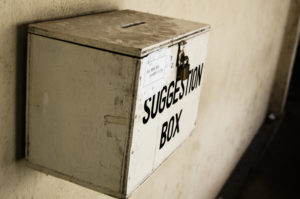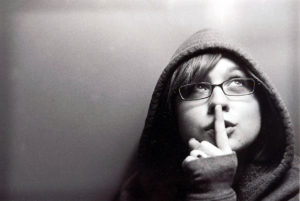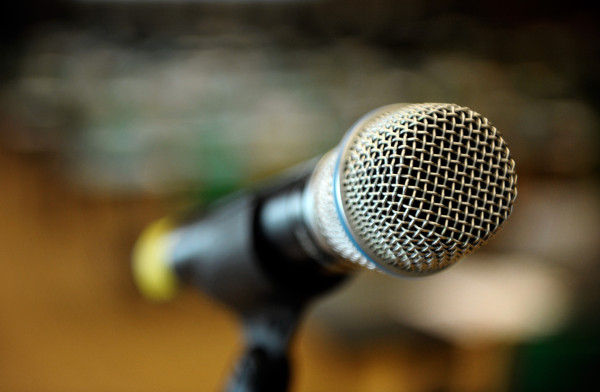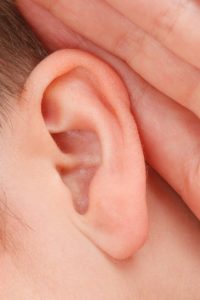When a client preparing for the Governor’s convention and my wife preparing to talk to the women at church asked me the same question, I found myself giving them the same answer.
When my public speaking clients have little time to prepare a lesson or speech, I usually hear some variation of this question:
What is the ONE MOST IMPORTANT THING I can do to make a good impression?
Of course, they are not really asking for me to tell them the most IMPORTANT thing, they are really asking me to tell them the EASIEST presentation skill that will make a big difference in the least amount of time.
The answer, I confess, is not even part of my SpeechDeck public speaking system.
If you want to make a good impression: BE LOUD!
Don’t be “loud”
 I did not say be obnoxious.
I did not say be obnoxious.
I did not say be arrogant.
I did not ask for a blood curdling, ear-piercing, high-pitched, cacophony of unnatural eccentricity.
Often, when I ask someone to “be loud” they respond that they don’t want to come across as conceited or offensive.
Okay, good, then don’t act conceited or offensive. I’m not talking about attitude or intention, I’m talking about volume. Just be louder.
I don’t want to be too loud
If you say “I don’t want to be too loud,” I admire your humility. I admire your concern for others. I admire your desire to do the “right” thing. But I don’t admire your speaking skills, because the “right” thing when you’re in the spotlight is to speak up.
Image that “loud,” obnoxious person you know. Did that “loud,” obnoxious person ever utter the words “I don’t want to be too loud!”?
The only people who ever utter that sentence are quiet people!
If you are an I-don’t-want-to-be-too-loud person, I’ll bet you free use of a microphone that nobody ever actually told you that you were being too loud–at least not on stage.
Be loud
Loud works.
Did you ever wonder why the volume is so high at the movie theater? Did you ever notice that the commercials on TV always seem louder than the show?
Loudness works so well, that advertisers ignored the “voluntary” federal volume regulations for decades. As a result, in 2010 congress passed the “Commercial Advertisement Loudness Mitigation Act” to force advertisers to tone it down.
What is too loud?
What is too loud? If you have to ask, then you are an I’m-worried-about-offending-people type of person, and you have no risk of speaking too loudly.
In any room bigger than your kitchen, your kind, sweet, respect-others voice has no chance of matching the loud-speaker levels of that TV commercial.
But I have a microphone?
Good. You need a microphone. If you are ever offered a microphone say, yes! In fact don’t wait for the offer. Say, pretty please I need a !#@$% microphone.
 Of course the swearing is optional. However, notice that if the swearing makes you unconformable, it only proves my point. There is no risk of you being too “loud.”
Of course the swearing is optional. However, notice that if the swearing makes you unconformable, it only proves my point. There is no risk of you being too “loud.”
Even behind that microphone, you should speak louder than you think. A Microphone is not an excuse to speak more quietly. The microphone is a symbol of your willingness to be heard.
Don’t back away!
In almost every setting where a microphone is available, it is not your job to worry about being too loud.
Some sound engineer (or at least an IT guy or meeting organizer) has the job of turning down the volume when the “loud” obnoxious speaker comes to the lectern.
You will never be too loud, because somebody will turn down the volume. If, on the other hand, you are too afraid to get intimate with that microphone, no amount of turning the volume up can compensate.
Make an impression
Why does loud matter? Because when you are loud (in volume) you almost always make a better impression.
Here are some of the SpeechDeck skills that improve automatically when you are loud:
C Clarify your Content
 It never ceases to amaze me when I’m judging or watching a speech contest, how many contestants speak so softly that I have to concentrate intensely to follow along.
It never ceases to amaze me when I’m judging or watching a speech contest, how many contestants speak so softly that I have to concentrate intensely to follow along.
How am I supposed to love you and your ideas when you make me work that hard to listen? After dozens of such contests, I’ve noticed this one simple unwritten rule.
Loud speakers don’t always win, but quiet speakers always lose.
You probably aren’t speaking in a contest, but your audience is judging you. It doesn’t matter how good your message, it’s not clear if nobody can hear you.
A Inject Anticipation
The quieter your personality, the better loudness will help you get attention. “Be yourself” is probably the most important rule of public speaking, and there are very few exceptions.
However, one exception is for quiet people. Quiet people have to be loud too.
That inherent contradiction generates incredible anticipation on the part of the audience. That’s why loud commercials work, it creates a sense of opposition and novelty–even if you don’t like it.
R Develop Relationships
Loudness will only hurt you if it is divisive, dividing your audience into competing groups or alienating yourself from the audience.
Don’t think of it that way.
As long as you approach loudness as a way to include more people, you win.
 If you need an excuse to think more inclusively, remember that 1 in every 5 people experiences some form of hearing loss, when you are loud you include more people, because fewer people have an excuse to zone out.
If you need an excuse to think more inclusively, remember that 1 in every 5 people experiences some form of hearing loss, when you are loud you include more people, because fewer people have an excuse to zone out.
M Reveal the Messenger
The reason loud works so well, is that loud presenters always appear more confident than quiet speakers, and confidence is the single biggest factor in making a good impression.
That’s just the way your brain works.
I promise that when you intentionally try to speak louder, not only will you sound more confident, but you’ll find yourself subconsciously editing out the words that you can’t say with more confidence.
 Can you imagine a speaker standing at a lectern and proclaiming with loud, bold enthusiasm: “I kinda think maybe we should have justice.”
Can you imagine a speaker standing at a lectern and proclaiming with loud, bold enthusiasm: “I kinda think maybe we should have justice.”
You can’t do it. Timid words can only be spoken timidly.
When you force yourself to say it louder, it will come out more like “I have a dream …”
I Empower the Individual
Personally, at every presentation or class I ask my own audiences for feedback.
 I really hope they will tell me they learned something new. I really want listeners to compliment me on my creativity. I really smile when someone remembers me.
I really hope they will tell me they learned something new. I really want listeners to compliment me on my creativity. I really smile when someone remembers me.
But that is not what they want.
The one compliment I receive over and over. The one response that I hear most often. The one quality that makes the biggest impression is “passion.”
I don’t get complimented on what I really want, I get complimented many times more often on my “passion.”
Sometimes they say energy, or intensity, or enthusiasm. No matter what word they use, in every case, the impression could not be made without “volume.”
It’s not really the compliment that matters most to me as the speaker, but it is the experience that matters most to the audience.
S Engage the Subconscious
Perhaps the most important reason to be loud is because of subconscious emotion.
If you are not loud, then you cannot be quiet.
Generating emotion requires a dynamic range all the way from loud to soft.
This is the real reason why movie theaters set the sound system so high. Modern movie theater sound systems have a bigger dynamic range than old ones.
You can hear the high intensity battle scene no matter how low or high they set the volume. However, experiencing the quiet whispers of emotion at the graveside in the next scene requires you to hear subtlety.
 You can only hear the tear fall, you can only hear the cricket’s chirp, and only hear the actor’s sigh, when the volume is turned high.
You can only hear the tear fall, you can only hear the cricket’s chirp, and only hear the actor’s sigh, when the volume is turned high.
When your average volume is loud, your sensitive volume is audible.
When your average volume is average, that quiet moment is impossible.
How loud
This tip takes zero study to understand.
This tip takes zero practice.
This tip takes zero effort.
If you want to make that confident impression, all you have to do is switch your mental perspective and admit that when you are on stage, you are supposed to be the center of attention.
When you are the speaker, it is your job to embrace the spotlight and fill the room.
If you are already an over-confident, self-absorbed, highly extroverted, attention-seeking, cauldron of enthusiasm, then your volume is already perfect. (Although, I’m pretty sure this is not you, because those perfect-volume people don’t usually seek out this kind of blog.)
Don’t just be loud enough that they can hear you, be loud enough that they can’t NOT hear you.



